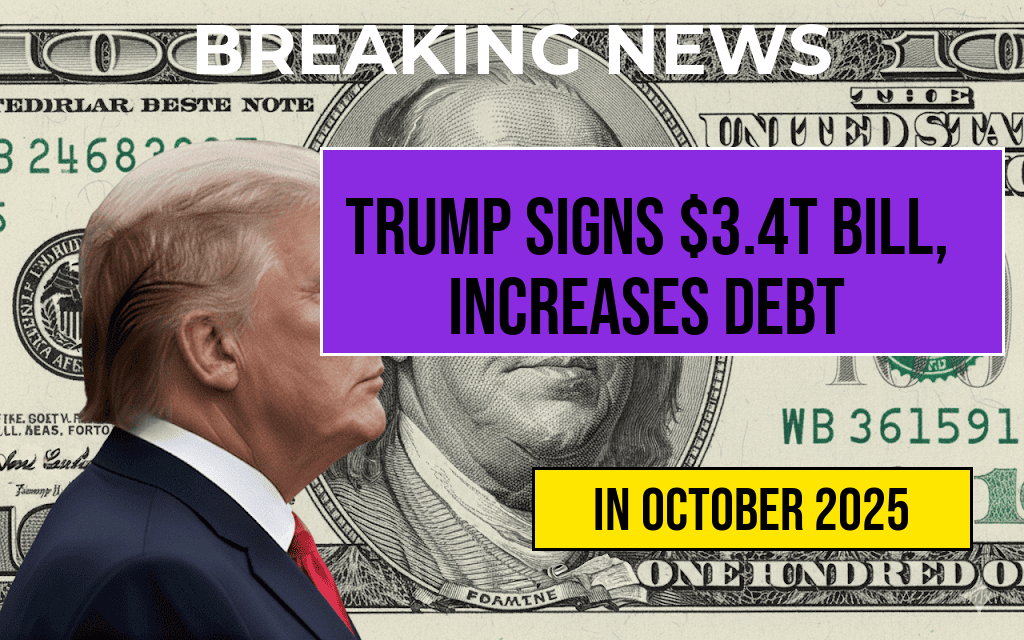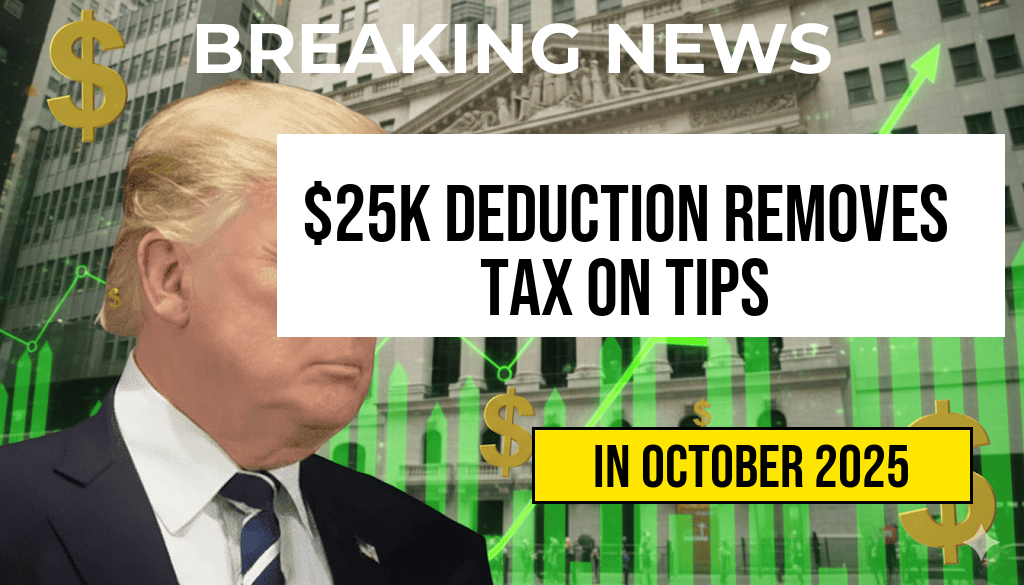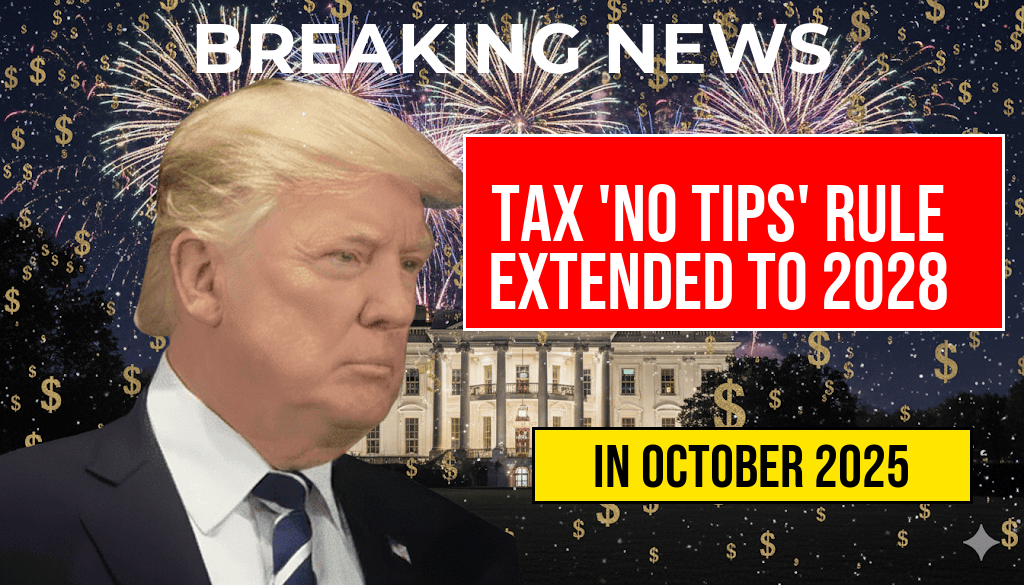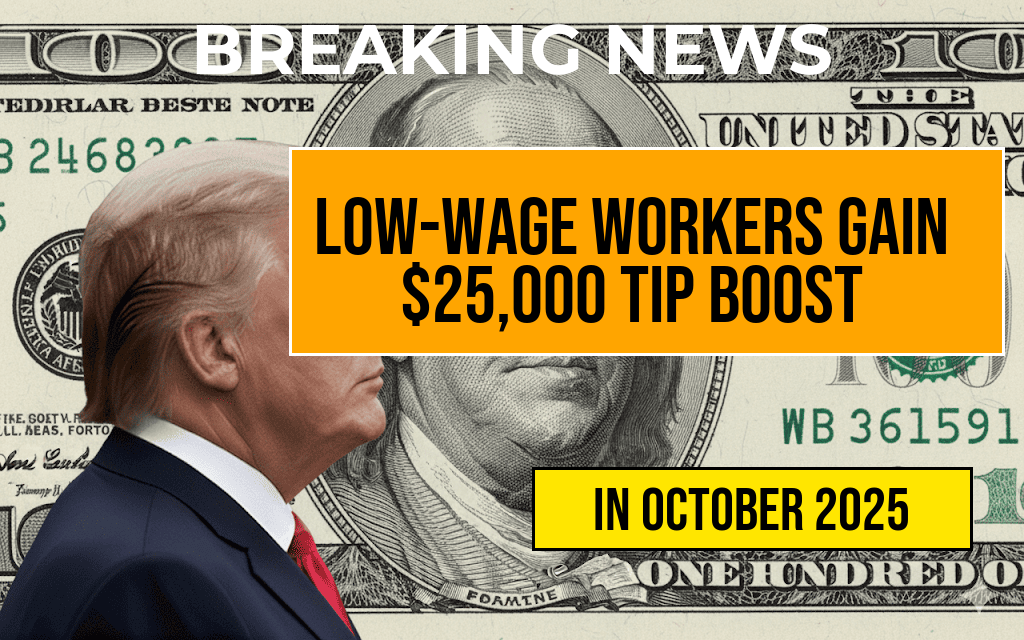In a significant move impacting the U.S. economy, President Donald Trump has signed a $3.4 trillion mega-bill aimed at stimulating growth while increasing the national debt by an estimated $4 trillion. This ambitious legislation seeks to address various sectors including infrastructure, healthcare, and education, with a notable stipulation that no taxes will be imposed on tips, a decision that has drawn both support and criticism. As lawmakers and analysts digest the implications of this bill, concerns about fiscal responsibility and long-term economic stability are at the forefront of discussions.
Details of the Mega-Bill
The newly signed legislation encompasses a wide range of initiatives designed to bolster job creation and support vital services across the nation. Key components of the bill include:
- Infrastructure Investment: A large portion of funding will be allocated for repairing and upgrading roads, bridges, and public transit systems.
- Healthcare Expansion: The bill proposes increased funding for public health programs, aiming to improve access to care for underserved populations.
- Education Funding: The legislation includes provisions for enhancing public education, including teacher salaries and resources for schools.
Debt Implications
While the bill is projected to provide a substantial economic boost, it raises questions about the implications of increasing the national debt by $4 trillion. Critics argue that such a significant rise in borrowing could lead to higher interest rates and a strained economy in the long term. The Congressional Budget Office (CBO) has warned that persistent deficits could hinder future economic growth.
In response to these concerns, White House officials have emphasized that the investments made through this mega-bill will generate economic activity that offsets the costs of increased debt. They argue that by stimulating growth now, the government can create a more robust economy that will ultimately benefit taxpayers.
No Taxes on Tips
One of the most controversial aspects of the bill is the provision that prohibits any taxation on tips. This decision has been met with mixed reactions from various stakeholders:
- Supporters: Proponents argue that this measure will benefit low-wage workers in the service industry, helping them retain more of their earnings.
- Critics: Some economists contend that this policy could exacerbate income inequality and deprive the government of potential revenue needed for public services.
The decision to exempt tips from taxation has sparked a broader debate about tax reform and equity in the U.S. tax system. Advocates for change argue that a more equitable approach to taxation should be considered, especially as the nation faces rising debt levels.
Economic Reactions
The signing of this mega-bill has drawn a variety of responses from economists, politicians, and the public. Many analysts believe that while the immediate benefits may be substantial, the long-term effects of increased national debt could pose significant challenges. Market analysts are closely monitoring stock market reactions, as investors weigh the potential for economic growth against the risks associated with higher debt levels.
Public opinion appears divided, with many citizens expressing hope that the bill will create jobs and improve services, while others voice concerns about fiscal responsibility. A recent poll indicated that approximately 60% of respondents support the infrastructure investments, but only 45% agree with the decision to increase the national debt.
Looking Ahead
As the nation navigates the complexities of this mega-bill, the focus will shift to implementation and the effectiveness of proposed measures. The coming months will be crucial for assessing the impact of this legislation on the economy and public services. Lawmakers will be tasked with monitoring outcomes and making adjustments as needed to ensure that the objectives of job creation and economic growth are met.
The long-term sustainability of the U.S. economy remains a topic of critical discussion, with many calling for a balanced approach to fiscal policy that considers both immediate needs and future obligations. With the national debt now a focal point of the national conversation, the implications of this bill will likely reverberate through the political landscape in the months and years to come.
For further reading on the implications of U.S. debt, visit Wikipedia or for insights on economic policies, check out Forbes.
Frequently Asked Questions
What is the total amount of the mega-bill signed by Trump?
Trump signed a $3.4 trillion mega-bill, which is expected to increase the national debt by an additional $4 trillion.
Will there be any new taxes introduced on tips?
No, Trump has promised that there will be no taxes on tips as part of this legislation.
What impact will this mega-bill have on the national debt?
The mega-bill is projected to increase the national debt significantly, adding $4 trillion to the existing amount.
How does this bill affect taxpayers?
While the bill does not introduce new taxes on tips, the overall increase in the debt may have long-term implications for taxpayers and future fiscal policy.
What are the main components of the mega-bill?
The mega-bill includes various spending measures totaling $3.4 trillion, aimed at stimulating the economy but also contributing to the increased national debt.






